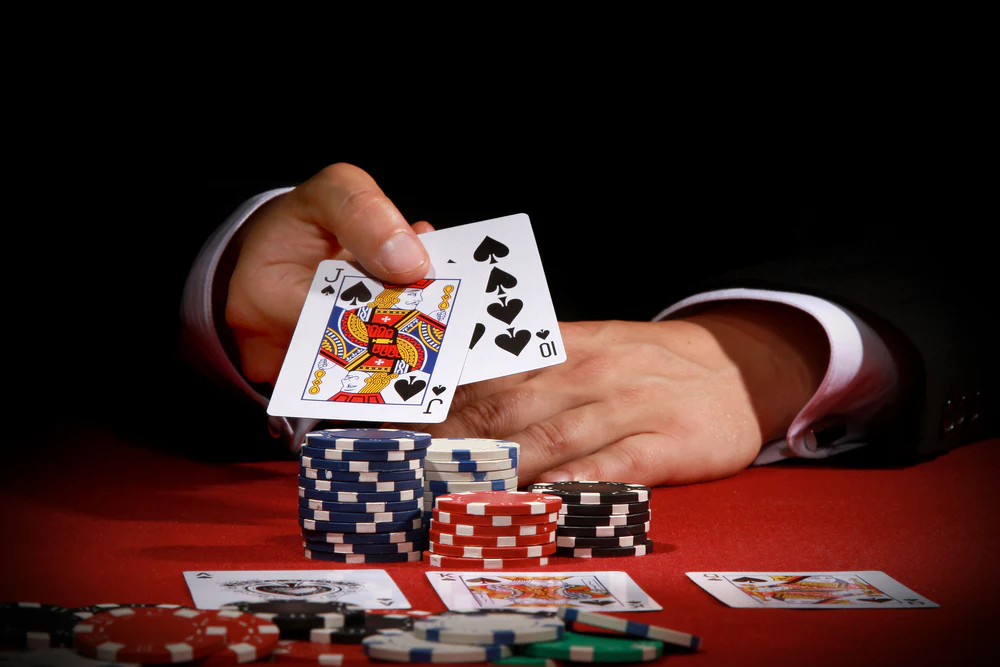Poker is a game of skill, strategy, and psychology. While understanding the mathematical odds and mastering various strategies are crucial, the psychological aspect of poker often separates the good players from the great ones. By understanding and leveraging the psychology of poker, you can outsmart your opponents and gain a significant edge at the table. This guide will delve into key psychological tactics to help you elevate your poker game.
.
Understanding the Basics of Poker Psychology
One of the most critical aspects of poker psychology is maintaining emotional control. Known as tilt losing emotional control can lead to poor decision-making and significant losses. Learning to manage your emotions, stay calm under pressure, and avoid frustration is essential for consistent success.
Poker is as much about reading your opponents as it is about playing your own cards. By observing your opponents’ behavior, betting patterns, and body language, you can gather valuable information about their hand strength and intentions. This skill, often referred to as “tells,” can provide you with the insight needed to make better decisions.
Key Psychological Strategies
Bluffing is a fundamental part of poker, but it must be done with precision. Successful bluffing involves convincing your opponents that you have a stronger hand than you actually do. To bluff effectively:
- Choose the Right Moment: Bluffing works best in situations where the community cards are likely to have missed your opponents’ hands.
- Maintain Consistency: Your bluffing actions should mimic your betting patterns when you have a strong hand.
- Target the Right Players: Bluff against players who are more likely to fold rather than calling stations who tend to call frequently.
Your table image is how other players perceive you based on your playing style. Are you seen as aggressive, tight, loose, or passive? Understanding and manipulating your table image can be a powerful psychological tool. For example, if you’ve been playing tight and suddenly make a big bet, opponents may be more likely to fold, believing you have a strong hand.
Applying pressure through aggressive betting can force your opponents into difficult decisions. This tactic can lead to mistakes, especially if they are unsure of your hand strength. However, it’s important to balance aggression with caution to avoid overcommitting to weak hands.
Identify and exploit your opponents’ weaknesses. If a player is overly cautious, you can bluff more often. If a player is too aggressive, you can trap them with strong hands. Adapting your strategy to exploit these tendencies can give you a significant advantage.
Advanced Psychological Tactics
Reverse tells involve deliberately giving false signals to mislead your opponents. For instance, if you typically bet quickly with strong hands, you might take more time with a strong hand to appear weak. This can cause your opponents to misread your strength and make mistakes.
Your position at the table has a significant psychological impact. Being in a late position allows you to see how your opponents act before you make your decision, giving you a strategic advantage. Use this information to control the pot size and apply pressure when appropriate.
Your demeanor at the table can influence your opponents’ perceptions and decisions. Confidence, calmness, and unpredictability can make you a formidable opponent. Conversely, showing signs of frustration or nervousness can be exploited by observant players.
Engage in mental exercises to improve your psychological resilience and observational skills. Practice maintaining a neutral demeanor regardless of your hand strength. Engage in online poker forums and discussions to learn from experienced players about psychological strategies.Poker is a constantly evolving game, and staying ahead requires continuous learning. Read books on poker psychology, watch tutorials, and analyze professional games to understand how top players use psychological tactics to their advantage.
After each game, review your play and reflect on your psychological tactics. Did you manage to maintain emotional control? Were your bluffs successful? Did you accurately read your opponents? Self-reflection and analysis are key to improving your psychological game.
Developing a Winning Mindset
Confidence is essential in poker, but it must be balanced with humility. Overconfidence can lead to reckless play, while a lack of confidence can result in overly cautious decisions. Strive for a mindset where you trust your skills and judgment but remain open to learning and adapting.
Poker requires immense patience and discipline. Avoid the temptation to play every hand and focus on making well-considered decisions. Discipline yourself to fold when necessary and resist the urge to chase losses. Variance is an inherent part of poker. Even the best players experience downswings. Accepting that luck plays a role in the short term will help you maintain a positive mindset. Focus on making the best possible decisions, and over time, the results will reflect your skill.
Continuous study is crucial for mastering poker psychology. Read books, watch videos, and participate in forums to deepen your understanding of the psychological aspects of the game. Notable books include The Psychology of Poker by Alan Schoonmaker and Reading Poker Tells by Zachary Elwood. Watching professional poker players can provide valuable insights into advanced psychological strategies. Pay attention to how they handle pressure, their betting patterns, and how they exploit opponents’ weaknesses.
Developing mindfulness can improve your emotional control and decision-making. Techniques such as meditation and deep-breathing exercises can help you stay calm and focused during intense poker sessions
Mastering the psychology of poker involves understanding both your own mindset and the behaviors of your opponents. By maintaining emotional control, reading your opponents, and employing advanced psychological strategies, you can outsmart your competition and increase your chances of success. Remember, poker is as much a mental game as it is a card game. Sharpen your psychological skills, stay disciplined, and enjoy the journey of becoming a more formidable poker player.
- Top 5 Health Benefits of Using CBDa Oil - September 30, 2024
- Comparing Live Dealer Games: Poker, Slots, and Roulette - September 10, 2024
- The Growing Popularity of Slot Games in Thailand - August 21, 2024
